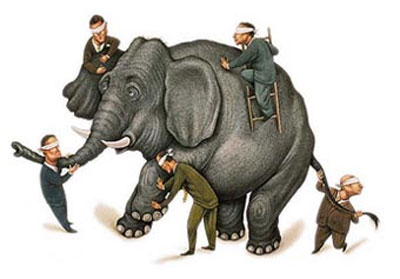
Religion is at its best when it makes us ask hard questions of ourselves. It is at its worst when it deludes us into thinking we have all the answers for everybody else.
Archibald Macleish
In the second of the series of online interfaith discussions relating to God & Life, our focus this week is ‘Who or What is God?“. Our discussions, last week, related to ‘What is Life‘. Here, what follows, is a summary of our discussions.
It is important to remember that we come with our different perspectives which are not cast in stone. Each of us needs to reflect on the perspective of the other. Rowan Williams (*1) desired ‘to create space that belongs to neither of us but makes space for all of us‘.

To understand the other, we could step back from our accepted beliefs and attempt to gaze, if only for a while, through the eyes of the other. What do they see? Recalling of course that their image, what they perceive, may not resemble our understanding in many ways – but there may be similarities.
What is God?
Three blind men were touching an elephant. The first blind man was holding the elephant’s leg. He said, “I think an elephant is like the truck of a great tree.”
Johnson, Keith. E., John Hick’s Pluralistic Hypothesis and the Problem of Conflicting Truth-Claims, http://www.leaderu.com/theology/hick.html, last accessed 1 May 20
The second blind man disagreed. While holding the elephant’s trunk he said, “I believe an elephant is like a large snake,” .
The third blind man believed they were both wrong. “An elephant is like a great wall,” he exclaimed. He was touching the elephant’s side.
Each blind man was convinced he was right and others were wrong without ever realizing they were all touching the same elephant. Some believe the blind men in this parable represent the major religions of the world, each in contact with the same “elephant” without knowing it.

Hick suggests that society might say: “God is the infinite personal Being who has created the universe“.
So how would we describe God, this Being? Possibly a white bearded man, Krishna, a universal force, Ganesha, or not possessing a visual image whatsoever?




Who/What is God?
Is it important to separate out the What and the Who is God?
For with Islam, Muslim theology has been radically iconoclastic. Therefore, Allah is not simply beyond gender but for most Muslims, does not share human likeness. In contrast, Christians may speak of God the Father, as part of a ‘Trinity’. Muslim theology speaks of a way for humanity to relate to the One all-encompassing God.
For Hindus, with Krishna there are many, possibly millions, of Gods who support and lead their followers. Contrasting with Hinduism, the Sikh religion was founded in Northern India in the fifteenth century by Guru Nanak Dev Ji, and is monotheistic.
From our previous discussions relating to Wicca, we have discerned that there are many titles of Pagan Gods:

Our Discussion
We initially described God as: “faithful, the ground of our being, love, Father, all powerful, a comfort and a challenge, …everything“. But then, are these not attributes, feelings that ‘we’ are expressing through our own human understanding?
It was evident soon after that we had many other descriptions of God: perhaps the wind, the ruach; or a flowing river in which the ‘Father’ was the source, ‘Son’ the appearance, and the ‘Spirit’ the flow.
However, God was also described as… ‘God’, or “ehyeh asher ehyeh” (‘I am who I am’ in Hebrew, or εἰμί in Greek (‘I exist’). Is this a form of tautology?, or that God was beyond description perhaps?
Perhaps we describe what we perceive as God from our own consciousness: it is something that is contextual and fluid. This could infer that wherever we are in life, we can come to a knowledge of God, personal to ourselves. God gives us direction, an ethical basis, which forms our understanding of our own desired attributes.
Do we need an image of God?
What was also evident was the lack of description of God using terms of imagery. Despite millennia of art, myriads of pages of poetic depiction, God was understood as part of our being, not seen in human terms – unless we utilise the wisdom drawn from the Bible and the description of Jesus. Some could see how a life-force description might be understood.
So, can we see God through the eyes of the other?

There was a tension between the God whom is seen through actions, the effects of God’s involvement in our lives, and that relationship with God.
“The point of knowing what God is to form our understanding of ethics, not to know who or what is God.”
One comment from our discussion
Conclusion
We entered the discussions with years of tradition, education and experience, so has our opinion changed? It would seem not: the diversity of opinions, regardless of the faith perspective, had strengthened, even deepened, some people’s understanding of God.
God had not changed, and that we were in a living relationship with God. Our lives gave us new perspectives through our experiences; however, that only enabled a fresh understanding of God, our understanding of God.
So we were capable of ‘knowing’ our God in a personal and life changing way, albeit that ‘our‘ understanding might still differ from someone else’s understanding – but that was ok.
It might seem that we individually have a Hick’s elephant, to which as we journey in life, we experience a developing experience of God.
Do you agree? What would you like to say?
*1 Carter, Richard., The City is my Monastery, (Norwich : Canterbury Press, 2019), p. 185.
*2 Johnson, Keith. E., John Hick’s Pluralistic Hypothesis and the Problem of Conflicting Truth-Claims, http://www.leaderu.com/theology/hick.html, last accessed 1 May 20
One thought on “Who or What is God”
Comments are closed.